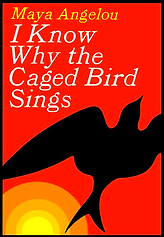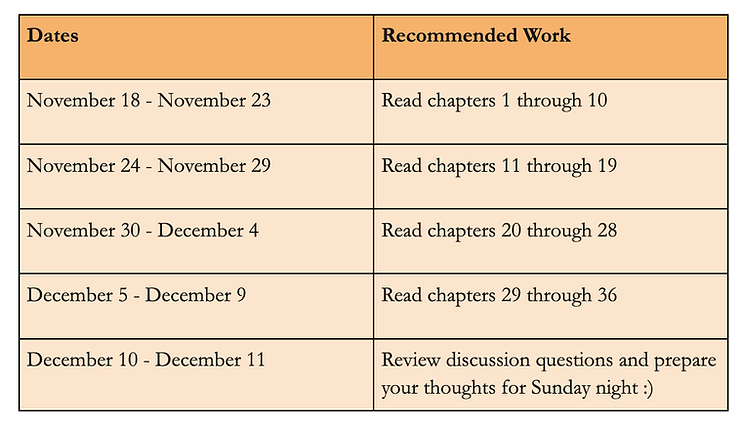Meeting Date: 12/11 at 7 pm

Physical Book: I Know Why the Caged Bird Sings, Maya Angelou
Digital Option: I Know Why the Caged Bird Sings, Maya Angelou
Optional supplement: Collected poetry by Maya Angelou
Book Summary: “Sent by their mother to live with their devout, self-sufficient grandmother in a small Southern town, Maya and her brother, Bailey, endure the ache of abandonment and the prejudice of the local “powhitetrash.” At eight years old and back at her mother’s side in St. Louis, Maya is attacked by a man many times her age—and has to live with the consequences for a lifetime. Years later, in San Francisco, Maya learns that love for herself, the kindness of others, her own strong spirit, and the ideas of great authors (“I met and fell in love with William Shakespeare”) will allow her to be free instead of imprisoned. Poetic and powerful, I Know Why the Caged Bird Sings will touch hearts and change minds for as long as people read.” — Oprah Winfrey
Disclaimer: I Know Why the Caged Bird Sings is a poignant and piercing account of Angelou’s early years. The book addresses the injustice and inhumanity Black Americans faced in the 1930s and 40s with a particularly upsetting reference to the rape of a young girl. To read a more detailed account of any difficult content in I Know Why the Caged Bird Sings, visit this link.
Discussion Questions:
- Maya Angelou begins her autobiography with a moment of public humiliation in church. Why do you think she chose this scene in particular?
- To Maya, her mother seems alternately charming, elusive, unreliable, and strong. Which episodes in the novel illuminate her character? Do you think she was a good mother?
- How does Angelou describe her abuse at the hands of Mr. Freeman? Do you think this trauma was the defining moment of the novel or of Angelou’s childhood? Why or why not?
- “I couldn’t force myself to think of them as people,” (26) Angelou writes of the whites in segregated Stamps, Arkansas. Does this change over the course of the novel?
- “We survive in exact relationship to the dedication of our poets,” (184) Angelou says of Black people. Do you think that this is true of all cultures?
- The title is a reference to a poem by Paul Lawrence Dunbar. Why do you think that Angelou chose this title?
* Questions derived from the Penguin Random House Reading Guide: https://www.penguinrandomhouse.com/books/3924/i-know-why-the-caged-bird-sings-by-maya-angelou/9780812980028/readers-guide/
Guiding Calendar for Readings:











